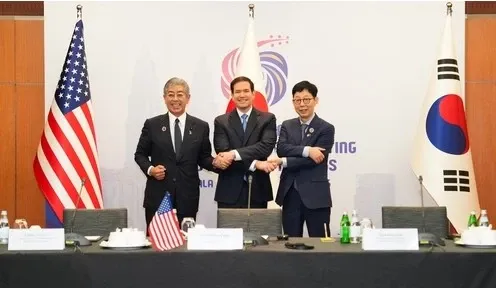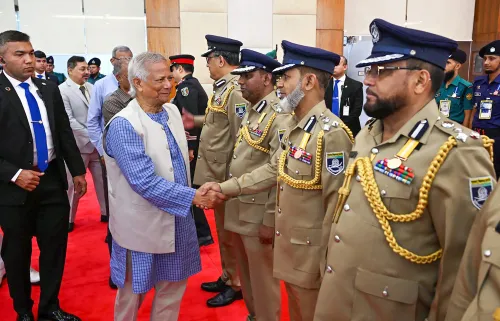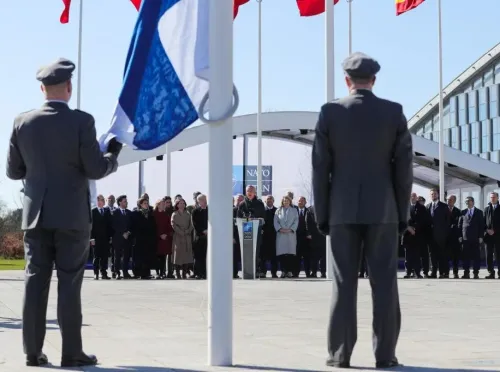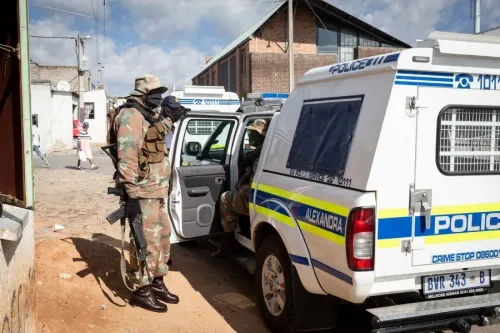What Happened During the First High-Level Diplomatic Talks Between South Korea, US, and Japan?

Synopsis
Key Takeaways
- The trilateral talks occurred in Kuala Lumpur on July 11.
- Focus was on North Korea's denuclearization and regional security.
- Meeting marks the first high-level discussions since the Lee Jae Myung government began.
- The talks lasted about 40 minutes and were attended by key foreign ministers.
- Concerns about China’s assertiveness were also addressed.
Kuala Lumpur, July 11 (NationPress) South Korea, the United States, and Japan convened for trilateral ministerial discussions during a multilateral assembly in Malaysia on Friday, focusing on collaboration regarding essential shared regional and global matters, according to officials from Seoul.
First Vice Foreign Minister Park Yoon-joo participated alongside US Secretary of State Marco Rubio and Japanese Foreign Minister Takeshi Iwaya, with the talks taking place against the backdrop of the foreign ministers' meetings organized by the Association of Southeast Asian Nations.
This event signified the inaugural high-level dialogue among the senior diplomats from these three nations since the advent of the Lee Jae Myung government in early June. Park is representing the foreign minister, as the appointment process remains underway.
The discussions extended for approximately 40 minutes.
The significance of these talks, with South Korea represented by the vice minister, underscores the value the three nations attribute to their trilateral alliance, which has been elevated to new levels under their former administrations, as reported by the Yonhap news agency.
During the meeting, the trio reaffirmed their dedication to coordinating on critical shared concerns, such as the denuclearization of North Korea and strategies to counter its nuclear threats, according to sources.
They also addressed North Korea's escalating cyber threats and its attempts to evade sanctions, while reiterating calls for Pyongyang to return to negotiations.
It is likely that Friday's discussions encompassed issues related to China's increasing assertiveness and maintaining security around the Taiwan Strait.
In a joint statement released following their previous trilateral discussions in Brussels in April, the three countries urged an end to actions that threaten stability around the Taiwan Strait, implicitly warning China against its rising military activities in the region.
The talks coincided with Seoul's negotiations with Washington aimed at mitigating the impact of tariff increases on its export-reliant economy. US President Donald Trump has communicated through letters to both Seoul and Tokyo that the "reciprocal" tariffs will come into effect on August 1.
Both South Korea and Japan are subject to 25% tariffs on their exports. Trump's announcement is viewed as an effective extension of the deadline that was initially set for July 9, following a 90-day pause on this measure.










